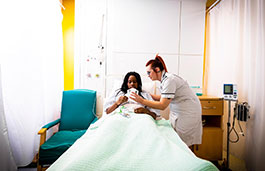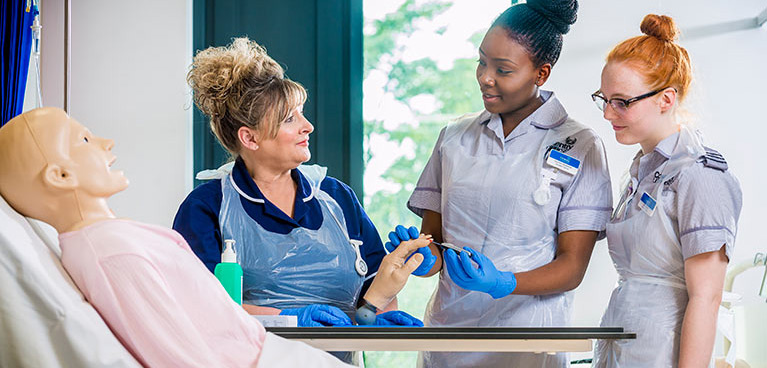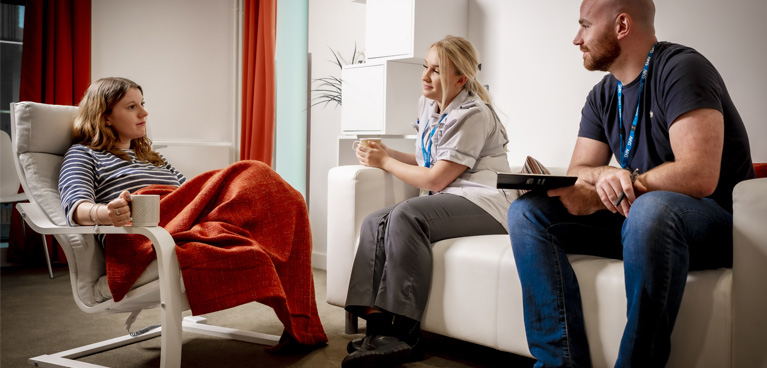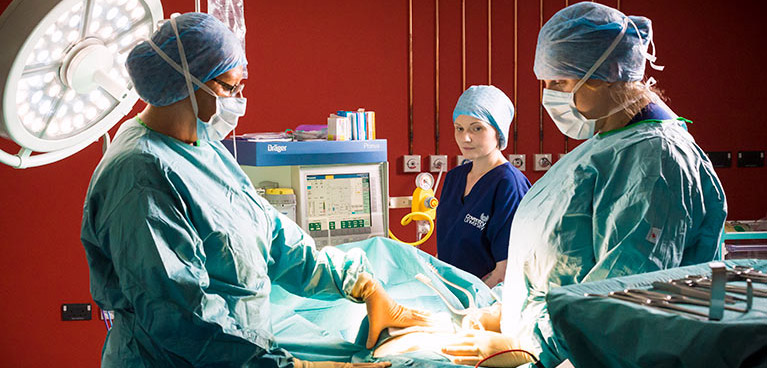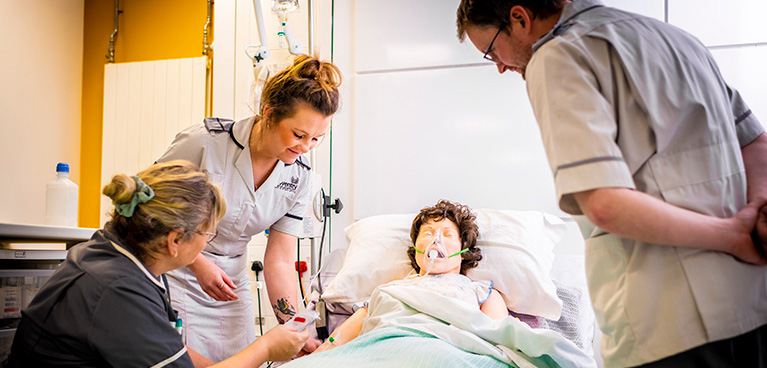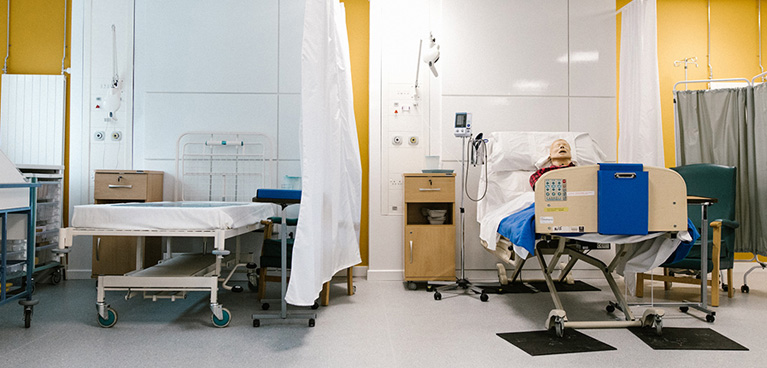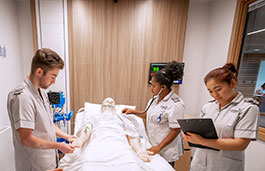Search
Adult Nursing BSc (Hons) Blended Learning
Study level: UndergraduateProfessionally Accredited Programmes
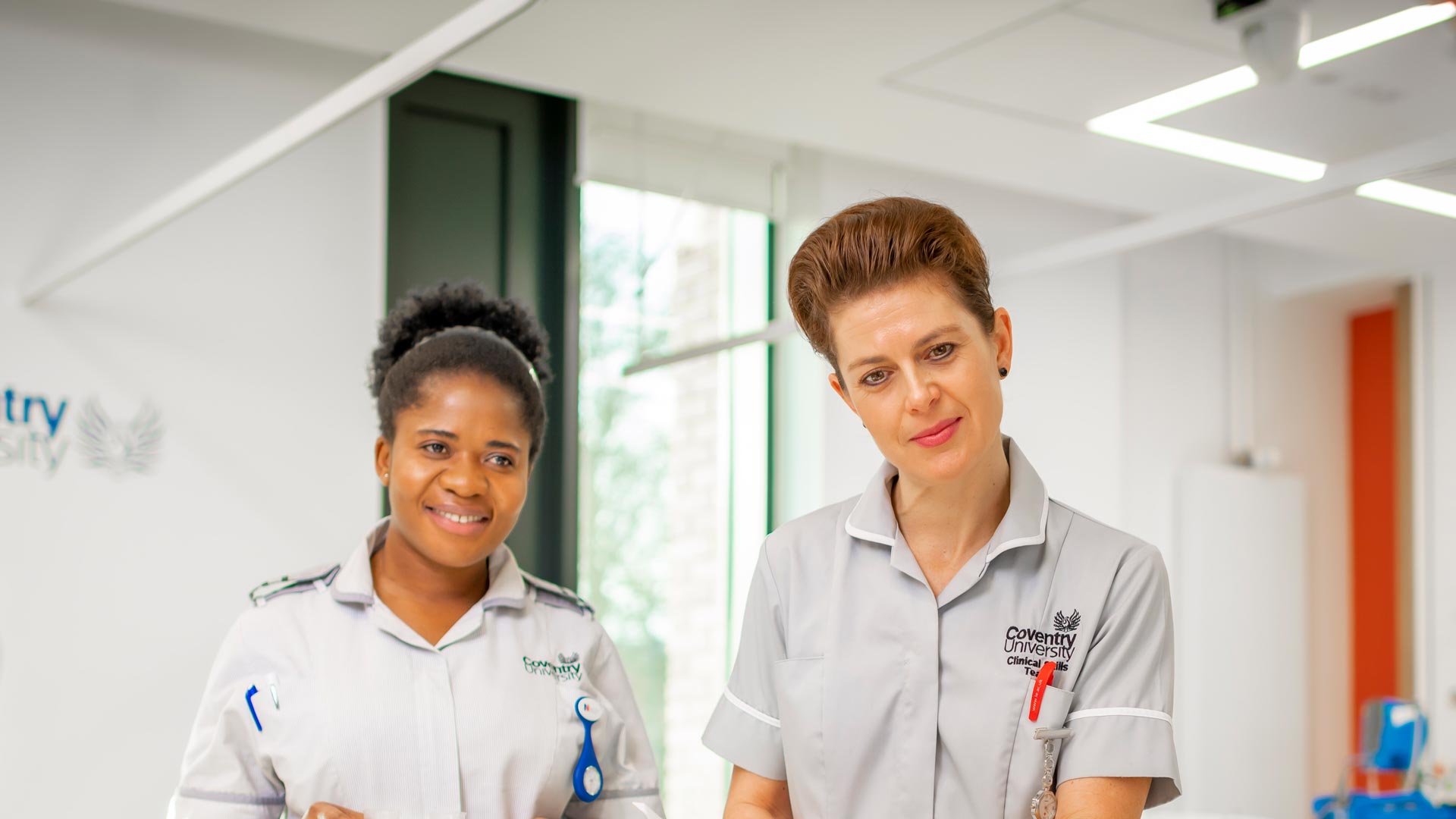
This degree combines flexible, interactive digital learning with practical clinical placements to lead you to professional registration and a rewarding career as an adult nurse.
Course features
Year of entry
Location
Coventry University (Coventry)
Coventry University (Vauxhall, London)
CU Scarborough (Scarborough)
Study mode
Full-time
Online/Blended
Duration
3 years full-time
Course code
HU02
Start date
January 2026
Course overview
Adult nurses work to improve people’s lives by offering comprehensive physical, emotional, mental and social support to people of all ages. This course aims to equip you with the knowledge, skills and behaviours required to independently address the diverse health and care needs of individuals across the lifespan.
Our blended learning degree combines flexible, interactive digital learning and virtual simulated experience with practice-based learning. Half of your learning is on placement, where you will apply your theoretical knowledge to the real world2,5.
Please note that you are required to be in the UK for the theory and practice modules throughout the course. Some of the theory delivery requires you to be on campus. All clinical skills theory and assessment is carried out on campus.
- Successful completion of this course makes you eligible to apply for professional registration as an Adult Nurse with the Nursing & Midwifery Council (NMC) (please see Accreditation section for more information).
- Gain the skills to deliver professional, impactful, evidence-informed care across a range of dynamic and diverse healthcare environments.
- Learn to collaborate and thrive as an adult nurse across and within multidisciplinary teams to coordinate safe, evidenced-based care delivery.
- Study one theory module at a time, with five weeks of learning followed by one week of assessment per module.
- Placement-based modules are longer to ensure that the requirements for the NMC are met. This learning will take place in diverse practice-based learning environments where you will apply your theoretical knowledge to the real world5.
- All eligible learners on this course can apply for a minimum payment from the government of £5,000 per year. You can apply for additional payments if you incur childcare costs6.
Rated Gold Overall
Teaching Excellence Framework (TEF) 20235 QS Stars for Teaching and Facilities
QS Stars University RatingsTop 5 Student City in England (Coventry)
QS Best Student Cities Index 2026Why you should study this course
If you are compassionate, enthusiastic and committed, we can support you in developing the skills to deliver professional, evidence-informed care that truly impacts people’s lives.
- Our approach supports you to develop a strong sense of professional identity and accountability as an adult nurse from day one.
- Develop your confidence and skills in preparation to lead, influence and supervise others.
- Delivered by a team that includes highly skilled, knowledgeable, nursing and allied health professionals.
- Develop your digital fluency, curiosity, critical and reflective thinking.
- Access to success coaches, placement supervisors and specialist support for mathematics and academic writing4.
Study in the School of Health and Care
Gain the skills and experience to transform lives, communities and the future of healthcare delivery. We aim to empower you to become a stand-out healthcare professional, capable, competent and confident in your field and role within the wider healthcare team.
Continuously developing your sense of professional identity as an adult nurse from day one, you'll learn in an environment that puts inclusivity, diversity and dignity at its heart.
Accredited and professional recognition:
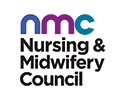
Nursing & Midwifery Council (NMC)
The Adult Nursing BSc (Hons) Blended Learning programme is approved by the Nursing & Midwifery Council (NMC) for the 2025-26 intake.1
Nursing at Coventry University
We have an excellent reputation for the quality of the education provided to trainee and qualified nurses.
Why study with us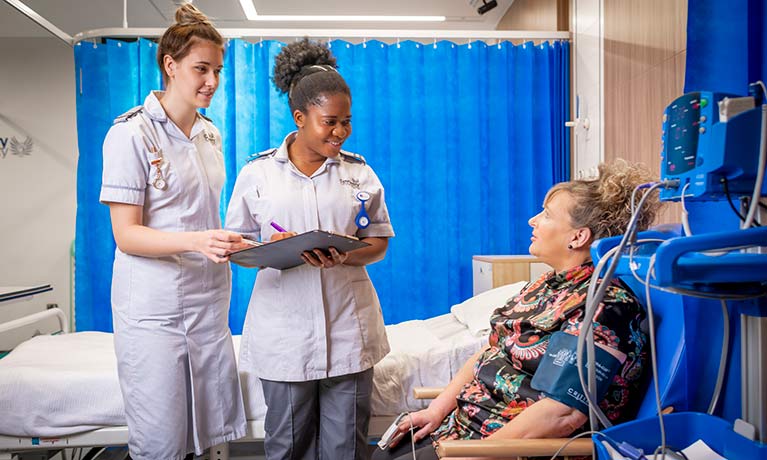
What you'll study
You will:
- study the knowledge, skills, behaviours and proficiencies required to meet the NMC professional standards. This enables you to apply for professional registration at the end of the course1
- study the global context of healthcare, including legal and ethical obligations
- explore the importance of accountability in delivering quality care to diverse populations, including the need for inclusivity and high standards
- have the opportunity to develop leadership skills, so you can work collaboratively within the multi-disciplinary team
- be supported on your journey to becoming a reflexive learner, able to analyse your own experiences in practice
- explore care delivery in evidence-based literature, ensuring your learning is grounded in scientific research and best practice.
Overall, we aim to develop compassionate and caring graduates who can offer the highest standards of care across the lifespan to patients and their families.
We regularly review our course content, to make it relevant and current for the benefit of our students. For these reasons, course modules may be updated.
How you'll learn
The course consists of 50 per cent academic or theory content and 50 per cent clinical or practice-based placements with practice providers2,5. You are required to attend campus at least one day per module block for classroom-based clinical skills and practical teaching and to meet your peers. This teaching will take place at either the university’s Coventry, Scarborough or London campuses. We believe this approach provides you with flexibility in your learning preferences and contextualises your learning, which will help you develop the skills you will need in practice.
We understand that everyone learns differently, so this course consists of structured teaching sessions which may include:
- online learning,including seminars, delivered through our learning platform
- on-campus lectures, seminars and workshops
- group work
- self-directed learning.
Teaching contact hours
As a full-time undergraduate student, you will study modules totalling 120 credits each academic year. A typical 20-credit module requires a total of 200 hours study. This is made up of teaching contact hours, guided and independent study.
Teaching hours:
Teaching hours vary depending on year of study and module. During your first year you can expect 4-6 teaching hours a week when online learning and 10-12 hours if it is a week you are attending campus. You will also have the option to attend optional sessions including time with a progress coach or to meet with staff for advice and feedback. As you progress through your studies, teaching hours may reduce.
Guided and independent study:
Throughout your studies, you will be expected to spend time in guided and independent study to make up the required study hours per module. You’ll be digging deeper into topics, review what you’ve learned and complete assignments. This can be completed around your personal commitments. As you progress through your studies, you’ll spend more time in independent study.
Assessment
This course will be assessed using a variety of methods which will vary depending upon the module.
Assessment methods may include:
- coursework
- practice placement
- formal examinations
- Virtual Simulated Placements (VSPs)
- simulations
- Objective Structured Clinical Examinations (OSCEs)
- presentations
- vivas (discussions).
The Coventry University Group assessment strategy ensures that our courses are fairly assessed and allows us to monitor student progression towards achieving the intended learning outcomes.
All the online tools that we have available to us such as future learn and the library are great, providing us with all the e-learning books to read, which has given me the relevant resources required. The online drop-in sessions are brilliant and just give a well-rounded overview of everything we have learnt to date, recapping on all the major topics of the week. I feel very well supported by colleagues.
Ella Booth, first year student, 2022

Entry requirements
Typical entry requirements:
Fees and funding
| Student | Full-time | Part-time |
|---|---|---|
| UK, Ireland*, Channel Islands or Isle of Man | £9,535 per year | Not available |
A non-repayable grant of £5,000 and extra payments worth up to £3,000 may be available to eligible students for each year of study6. Read more about this in the NHS Learning Support Fund information booklet.
For advice and guidance on tuition fees and student loans visit our Undergraduate Finance page and see The University’s Tuition Fee and Refund Terms and Conditions.
The University will charge the tuition fees that are stated in the above table for the first Academic Year of study. The University will review tuition fees each year. For UK (home) students, if Parliament permits an increase in tuition fees, the university may increase fees for each subsequent year of study in line with any such changes. Note that any increase is expected to be in line with inflation.
For international students, we may increase fees each year, but such increases will be no more than 5% above inflation. If you defer your course start date or have to extend your studies beyond the normal duration of the course (e.g. to repeat a year or resit examinations) the University reserves the right to charge you fees at a higher rate and/or in accordance with any legislative changes during the additional period of study.
We offer a range of International scholarships to students all over the world. For more information, visit our International Scholarships page.
Tuition fees cover the cost of your teaching, assessments, facilities and support services. There may be additional costs not covered by this fee such as accommodation and living costs, recommended reading books, stationery, printing and re-assessments should you need them. Find out what's included in your tuition costs.
The following are additional costs not included in the tuition fees:
- Any optional overseas field trips or visits: £400+ per trip.
- Any costs associated with securing, attending or completing a placement (whether in the UK or abroad).
Irish student fees
The rights of Irish residents to study in the UK are preserved under the Common Travel Area arrangement. If you are an Irish student and meet the residency criteria, you can study in England, pay the same level of tuition fees as English students and utilise the Tuition Fee Loan.
Facilities
Careers and opportunities
Once you have successfully completed the course you will be able to apply to register with the Nursing & Midwifery Council1. This will enable you to apply for a variety of nursing roles in a range of care settings.
Coventry University is committed to preparing you for your future career and aims to give you a competitive edge in the graduate job market. The university provides a wide range of support services to help you plan and prepare for your career.
Where our graduates work
The world of nursing opportunities is vast and varied – from hospital-based care to the private sector to primary care settings across the UK.
How to apply
You may also like

Mental Health Nursing BSc (Hons)
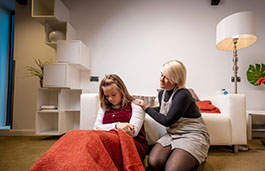
Learning Disabilities Nursing BSc (Hons)
